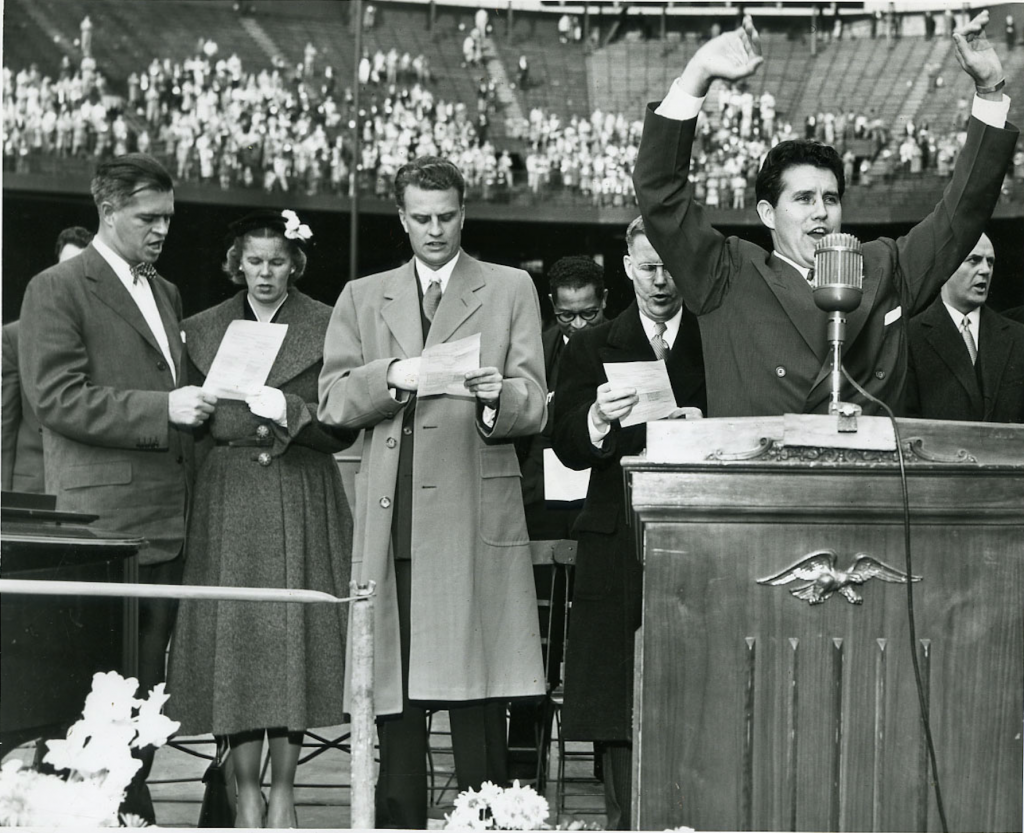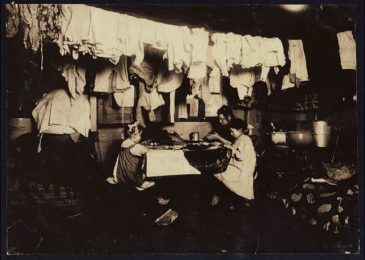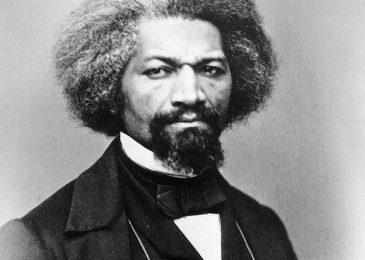Cliff Barrows passed away on Tuesday, November 15, 2016, at the age of 93.
Born in Ceres, California, Barrows attended Bob Jones University, graduating in 1944 with an AB in sacred music and Shakespearean drama.
Later that year he was ordained as a Baptist minister in California and became assistant pastor of Temple Baptist Church in St. Paul, Minnesota.
In 1945, Cliff and his wife, Billie (newly married), attended a Youth for Christ rally in Asheville, North Carolina, where a 26-year-old named Billy Graham was speaking. The scheduled song leader and piano player was not able to attend, and Cliff was asked to fill in.
In the fall of 1948, Billy Graham and Cliff Barrows left YFC to begin full-time work in citywide campaigns. Cliff served as music director, song leader, and master of ceremonies at almost all of Graham’s evangelistic meetings.
In November, while staying at the motel on S. 9th Street in Modesto, California, Graham and Barrows, along with George Beverly Shea and Grady Wilson, drafted the Modesto Manifesto, a set of commitments they would seek to keep where other evangelists had failed, covering four areas:
- Financial integrity
- Sexual purity
- Handling criticism
- Reporting with integrity
In September 1950, these four men—Billy Graham, George Wilson, Grady Wilson, and Cliff Barrows—joined Ruth Graham as charter members of the newly incorporated Billy Graham Evangelistic Association (BGEA).
On May 1, 2003, the Archive of American Television did an hour-and-a-half oral history interview with Cliff Barrows. Their website lists the topics as follows:
Part 1
- his childhood and early influences
- his love of music and Christian service
- his college years and radio work
- playing the trombone and joining Youth for Christ and meeting Billy Graham
- the formation of the Billy Graham Evangelistic Association, a corporation to allow for the purchase of radio time for the Reverend Graham’s forthcoming show
Part 2
- Billy Graham’s first radio program
- his early experiences on television with The Hour of Decision
- how the ministry and the Reverend Graham responded to communism, the civil rights movement, and JFK’s assassination
- Billy Graham’s relationships with U.S. Presidents
Part 3
- Billy Graham’s response to 9/11
- getting people to sing and directing the choir
- how he selects music
- how his audience has changed
- the challenges of being a music director
- being in dangerous situations
- Worldwide Pictures
- his own television viewing habits
- his proudest achievement
- the future of the Billy Graham Evangelistic Association
- advice to those who want to use the power of television to spread the gospel
- Billy Graham’s legacy
- how he’d like to be remembered
You can watch the entire conversation below. There is about a 30-second delay before the video begins.
[youtube https://www.youtube.com/watch?v=iOhnaVKZCIQ?feature=oembed&w=500&h=375]
[youtube https://www.youtube.com/watch?v=amu67hSqFRw?feature=oembed&w=500&h=375]
[youtube https://www.youtube.com/watch?v=Z3um6FvDy7U?feature=oembed&w=500&h=375]






